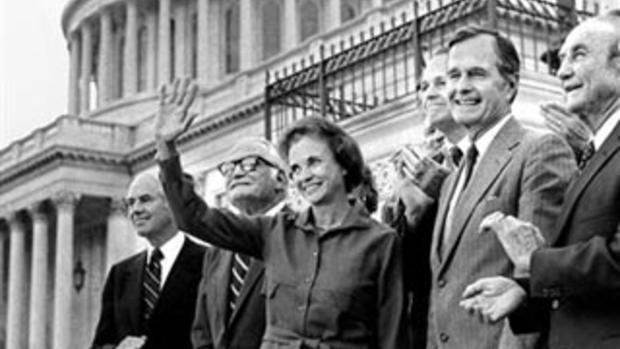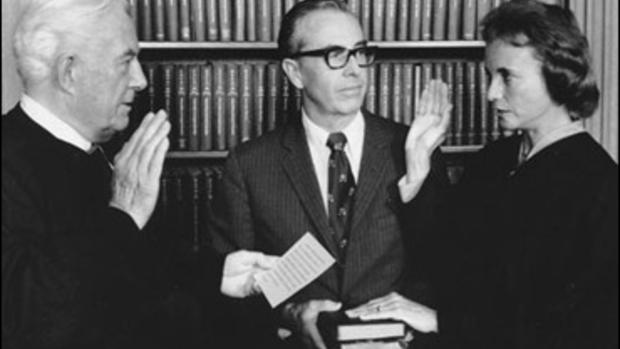July 7, 1981: Reagan debuts Sandra Day O'Connor as Supreme Court nominee
"Needless to say, most of the speculation has centered on the question of whether I would consider a woman to fill this first vacancy," President Ronald Reagan told a gathering of reporters on July 7, 1981.
During his campaign, the president had promised to nominate the "most qualified woman that I could possibly find" to the Supreme Court. With Justice Potter Stewart set to retire, it was time for him to fulfill that commitment.
"I pledged to appoint a woman who meets the very high standards that I demand of all court appointees," he said. "I have identified such a person."
The person was Sandra Day O'Connor, a 51-year-old judge in the Arizona Court of Appeals. After a full vetting by the FBI, Reagan officially nominated O'Connor in August.
Her appointment was met by resistance from some Republicans, who said she wasn't conservative enough. O'Connor had also opposed anti-abortion measures in the past, angering the pro-life community.
"The White House has received thousands of letters and telegrams opposing Judge O'Connor's nomination from Right to Life groups," reported CBS News' Bill Plante. But when asked during his nomination speech, the president said he was "completely satisfied" with her position.
Her nomination was ultimately approved unanimously one month after Reagan gave her the official nod.
On September 25, 1981, O'Connor was sworn in and became the first woman to serve on the highest court in the land.
She served on the court until her retirement in 2006, and was a strong moderate voice on the bench during her 25 years. She was a key swing vote on issues like abortion and the death penalty.
Three women have since joined O'Connor as history-making Supreme Court justices: Ruth Bader Ginsburg, Sonia Sotomayor, and Elena Kagan. All three currently serve, making up the largest ratio of women on the court ever.
In today's political world, nominating a woman is no longer controversial -- but it seems nominating anyone is. The passing of conservative Justice Antonin Scalia ignited a heated debate in Washington about who should nominate his replacement.
Republicans argued, since 2016 is an election year, the next president should have the honor of nominating a justice. Their hope is that a Republican will be in office, and they can keep a conservative seat on the Supreme Court.
- GOP leaders continue to refuse to consider Obama's SCOTUS nominee
- Ahead of SCOTUS nod, Obama warned Merrick Garland of political "war zone"
Democrats responded by claiming Senate Republicans were refusing to do the job they were elected to do, with the hashtag #DoYourJob surfacing on social media.
President Obama nominated Judge Merrick Garland anyway amid the stalemate, and most Republicans in the Senate have refused to even meet with him, let alone hold a confirmation hearing.
Many Supreme Court cases were left hanging in the balance, with the possibility of a tied 4-4 decision. That's exactly what happened with a case challenging the president's immigration action, leaving the lower court's strike down in place.


